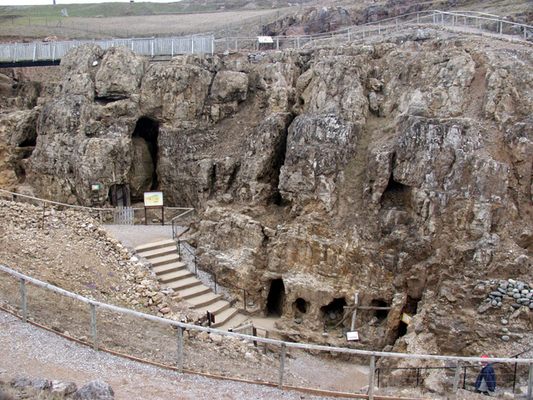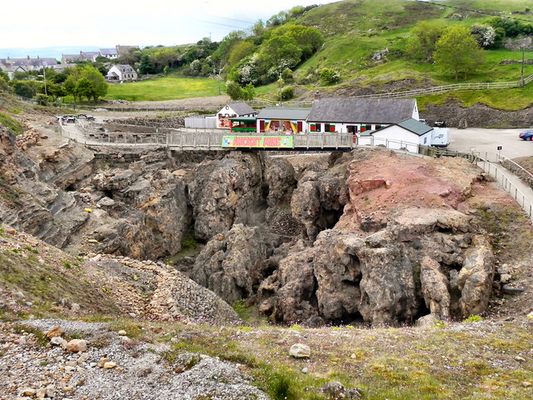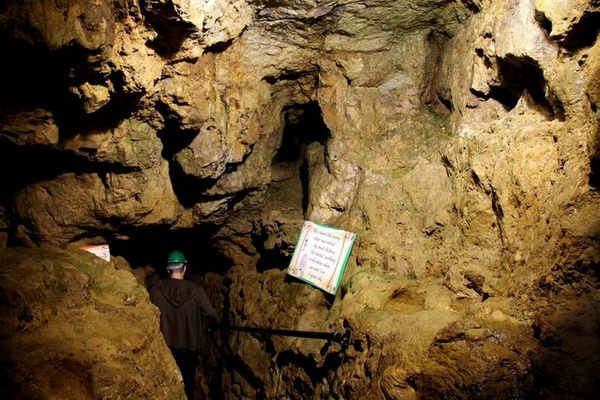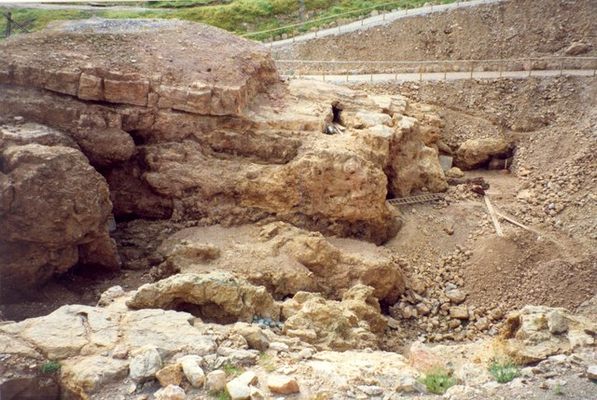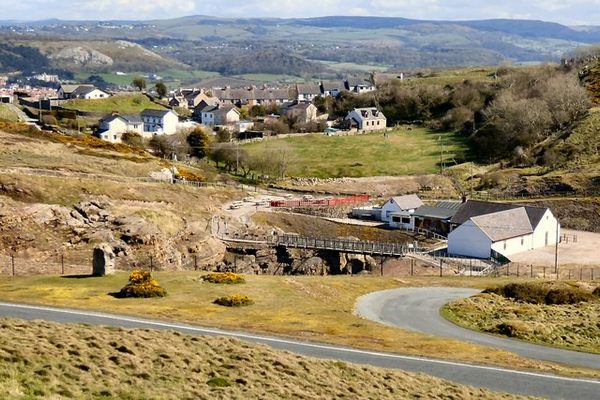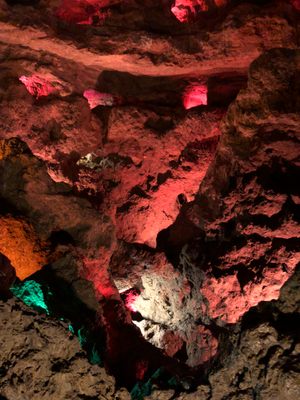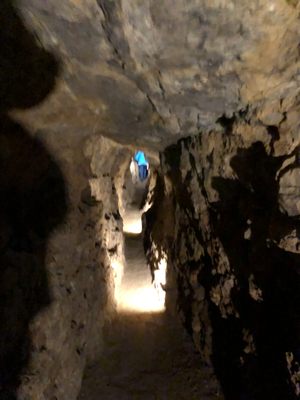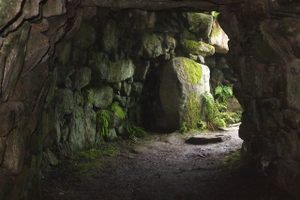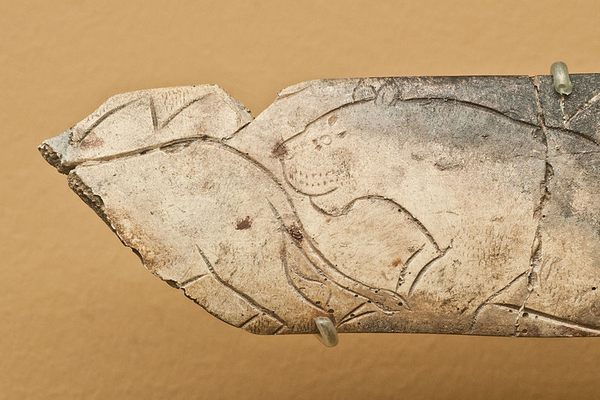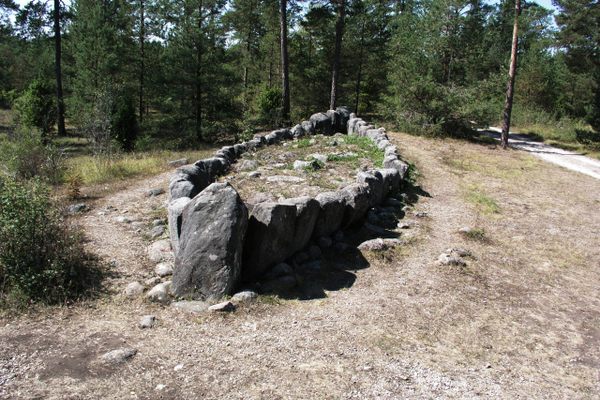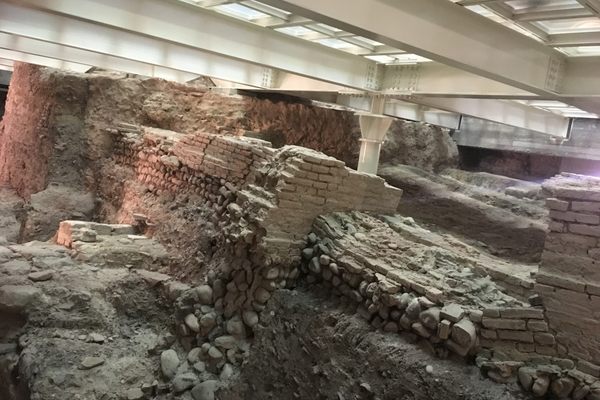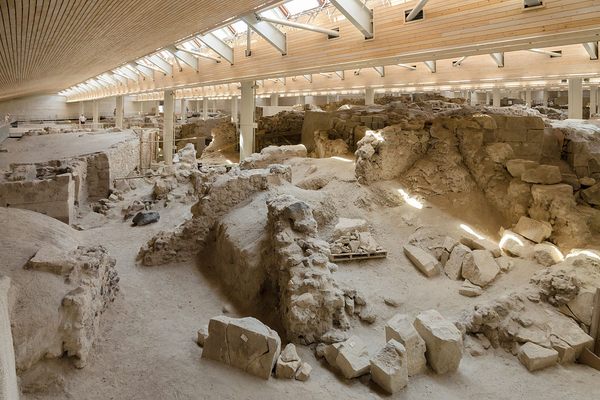About
This 3,500-year-old copper mine lies beneath a hillside in Great Orme, Wales. The mine, deemed the largest prehistoric copper mine in the world, is estimated to have produced enough copper to make nearly 2,000 tons of bronze. One archaeologist dubbed it “the Stonehenge of copper mining” because of it’s historical grandeur.
The ancient maze of passageways was discovered in 1987 during a landscaping scheme. Over five miles of tunnels, passageways, and caverns wind throughout nine different subterranean levels. At its deepest, the mine stretches down to about 230 feet below ground. Some of the tunnels are so narrow it’s believed they were carved by children no more than five years old.
There were over 30,000 animal bones found scattered throughout the maze of passageways. Bronze age workers created the mine by using stone hammers and tools made from animal bones. However, some of the animal remains discovered inside may have been put there as part of some sort of ritual. There were also hundreds of Bronze Age artifacts, such as tools and even human fingerprints.
The massive mines were abandoned sometime around 600 BC until the Romans reopened them for a brief stint centuries later. They opened again the late 17th century, but again, the mine became abandoned shortly after. Now, people can once again enter the mines and embark upon a self-guided tour of the narrow, dark tunnels.
Related Tags
Know Before You Go
They have a car park or it's just a short walk from the Great Orme cable car station. Dogs are allowed.
Community Contributors
Added By
Published
July 21, 2017
Sources
- http://www.greatormemines.info/wp-content/uploads/2016/05/Sian-James.pdf
- http://www.britainexpress.com/attractions.htm?attraction=392
- http://www.greatormemines.info/wp-content/uploads/2017/05/article.pdf
- http://www.greatormemines.info/wp-content/uploads/2016/05/Alan-Williams.pdf
- http://www.greatormemines.info/wp-content/uploads/2016/05/Prehistoric-Mining-at-the-Great-Orme.pdf
- http://www.historic-uk.com/HistoryUK/HistoryofWales/The-Great-Orme-Mines/
